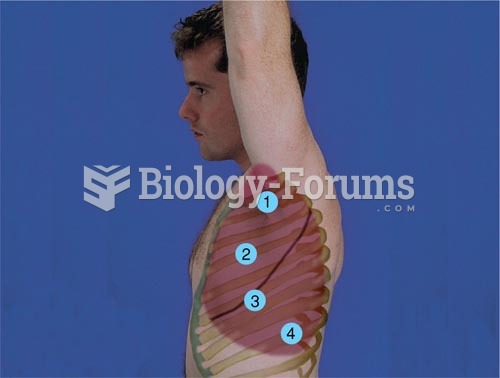|
|
|
Today, nearly 8 out of 10 pregnant women living with HIV (about 1.1 million), receive antiretrovirals.
The familiar sounds of your heart are made by the heart's valves as they open and close.
There are major differences in the metabolism of morphine and the illegal drug heroin. Morphine mostly produces its CNS effects through m-receptors, and at k- and d-receptors. Heroin has a slight affinity for opiate receptors. Most of its actions are due to metabolism to active metabolites (6-acetylmorphine, morphine, and morphine-6-glucuronide).
Alzheimer's disease affects only about 10% of people older than 65 years of age. Most forms of decreased mental function and dementia are caused by disuse (letting the mind get lazy).
In 2010, opiate painkllers, such as morphine, OxyContin®, and Vicodin®, were tied to almost 60% of drug overdose deaths.
 Functional MRI Scans These scans of human brains show localized average increases in neural activity
Functional MRI Scans These scans of human brains show localized average increases in neural activity
 This engraving by William Russell Birch shows Congress Hall (left), which was occupied by Congress f
This engraving by William Russell Birch shows Congress Hall (left), which was occupied by Congress f





